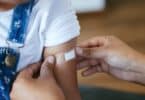
University of Akron Assistant Sociology Professor Adrianne Frech gathered longitudinal data from 2,540 women who had become mothers between 1978 and 1995. After analyzing the data, she found that working mothers reported better mental and physical health (greater mobility, more energy, less depression, etc.) at age 40 than stay-at-home moms, moms who work part time, and moms who have some work history, but are repeatedly unemployed. This was true even after Frech accounted for factors like pre-pregnancy employment, race/ethnicity, cognitive ability, single motherhood, age at first birth, and prior health conditions.
“Work is good for your health, both mentally and physically,” Frech said. “It gives women a sense of purpose, self-efficacy, control and autonomy. They have a place where they are an expert on something, and they are paid a wage.”
But rather than add fuel to the working moms against full-time moms debate, Frech says that the focus should really be placed on the persistently unemployed moms. She says that these women have the poorest health, overall. These women are in and out of work, rarely by choice. Frech is concerned that, for these women, the frequent highs and lows of finding and losing their jobs is contributing to their health problems.
“Struggling to hold onto a job or being in constant job search mode wears on their health, especially mentally, but also physically,” Frech said, adding that “Women with interrupted employment face more job-related barriers than other women, or cumulative disadvantages over time.”
Frech also says that the stress from work instability can cause health problems later in life. She believes that some of the perpetually unemployed issues could be resolved by making more programs for daycare and transportation available to single mothers.
Part-time moms and stay-at-home moms should be aware of their potential health risks as well. Stay-at-home moms are more likely to experience isolation and depression, which puts them at a higher risk for many health complications by age 40. Mothers who work only part-time are also more likely to have health problems than mothers employed full-time because they are less likely to experience the same sense of job satisfaction as mothers employed full-time.
With the information from this study, as well as other studies that have linked full-time employment to better mental and physical health, Frech She believes that women who have not had children yet can make better decisions regarding education and employment.
“If women can make good choices before their first pregnancy, they likely will be better of health-wise later. Example of good choices could be delaying your first birth until you’re married and done with your education, or not waiting a long time before returning to the workforce,” Frech said. “Don’t let critical life transitions like marriage and parenthood mean that you invest any less in your education and work aspirations, because women are the ones who end up making more trade-offs for family. Work makes you healthier. You will have the opportunity to save a nest egg. Also, should a divorce happen, it is harder to enter the workforce if you don’t have a solid work history. Don’t give up on work and education.”
Related Articles:
- Mom of 10 Expects Quintuplets ~ Naturally!
- Judgment of Character in Infants Now Up for Debate
- Persistent Snoring Children at Higher Risk for Behavioral Problems
SOURCE
Image credit: rmarmion / 123RF Stock Photo






